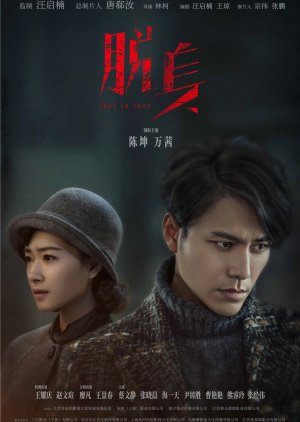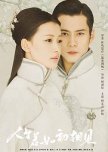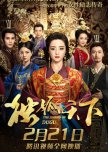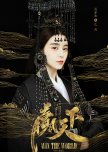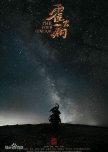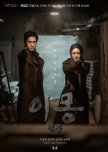
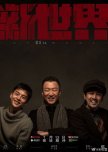
After watching 9 episodes I'm reminded of "Lost in 1949" with every episode
Similarities to Lost in 1949
- involves Communists party
- revolves around 1949 + liberation
- mentions Security Bureau
- romance between a communist and non-communist
- espionage/spy/action/historical/war drama themes
- smart female lead role played by the same main actress in "Lost in 1949", Regina Wan
Differences
- female lead is not as clueless about the communists party as she was in "Lost in 1949" drama and she is not as timid, she is portrayed as strong physically and mentally
- male lead has a respectable/upright job
Similarities to Lost in 1949
- involves Communists party
- revolves around 1949 + liberation
- mentions Security Bureau
- romance between a communist and non-communist
- espionage/spy/action/historical/war drama themes
- smart female lead role played by the same main actress in "Lost in 1949", Regina Wan
Differences
- female lead is not as clueless about the communists party as she was in "Lost in 1949" drama and she is not as timid, she is portrayed as strong physically and mentally
- male lead has a respectable/upright job
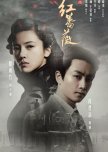
Similarities:
Take place in the same era, the FL is first married to a member of communist party and they have a child together and then the husband died. She met another man (ML) and eventually getting together with him and helping each other.
Differences:
The presence of the leading actors: in Lost in 1949 ML is the center of the drama while in Red Rose you are going to wonder who the ML is because he is “missing” in almost the half of the drama.
Take place in the same era, the FL is first married to a member of communist party and they have a child together and then the husband died. She met another man (ML) and eventually getting together with him and helping each other.
Differences:
The presence of the leading actors: in Lost in 1949 ML is the center of the drama while in Red Rose you are going to wonder who the ML is because he is “missing” in almost the half of the drama.

BOTH have this theme:
• "star-crossed lovers", a phrase describing a pair of lovers whose relationship is often thwarted by outside forces (Source: Wiki) OR whose relationship is doomed to fail (Source: dictionary.com)
• CLOY - 2 people from different world's (South Korean woman stumbles into North Korean man's territory by accident)
Lost in 1949 - same parallel, (streetwise, non-Communist man stumbles into Communist woman's life as an agent by accident)
• Military included heavily in both
• More action (fights) in Lost in 1949 but same for CLOY towards last few episodes
• Both - Love grows through their circumstances / fate
• CLOY - a NK army officer helps woman hide her SK identity
Lost in 1949 - Streetwise man helps woman hide her Communist agent identity
• BIG DIFFERENCE
CLOY - 19 episodes, hour length
Lost in 1949 - 46 episodes, hour length (WORTH EVERY MINUTE JUST LIKE CLOY)
• "star-crossed lovers", a phrase describing a pair of lovers whose relationship is often thwarted by outside forces (Source: Wiki) OR whose relationship is doomed to fail (Source: dictionary.com)
• CLOY - 2 people from different world's (South Korean woman stumbles into North Korean man's territory by accident)
Lost in 1949 - same parallel, (streetwise, non-Communist man stumbles into Communist woman's life as an agent by accident)
• Military included heavily in both
• More action (fights) in Lost in 1949 but same for CLOY towards last few episodes
• Both - Love grows through their circumstances / fate
• CLOY - a NK army officer helps woman hide her SK identity
Lost in 1949 - Streetwise man helps woman hide her Communist agent identity
• BIG DIFFERENCE
CLOY - 19 episodes, hour length
Lost in 1949 - 46 episodes, hour length (WORTH EVERY MINUTE JUST LIKE CLOY)

